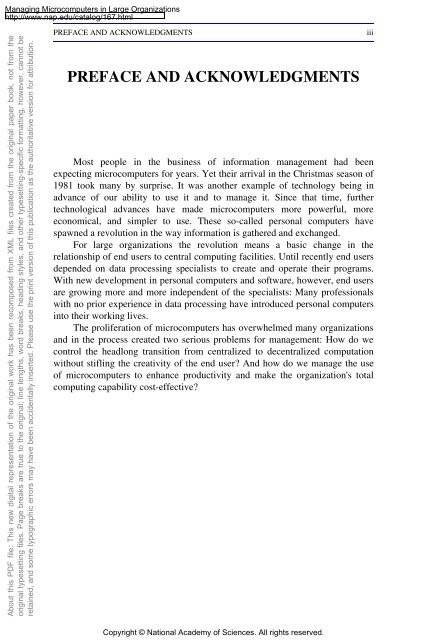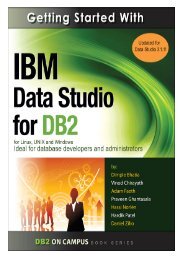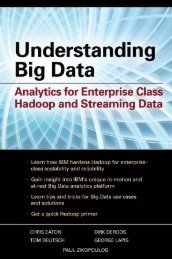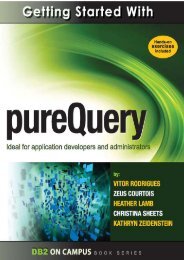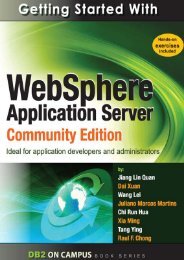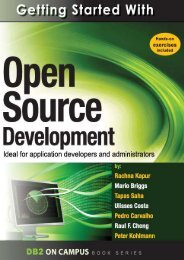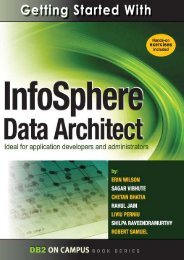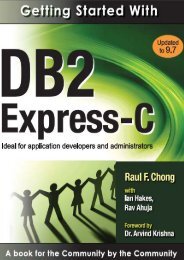Managing Computers in Large Organizations
Create successful ePaper yourself
Turn your PDF publications into a flip-book with our unique Google optimized e-Paper software.
<strong>Manag<strong>in</strong>g</strong> Microcomputers <strong>in</strong> <strong>Large</strong> <strong>Organizations</strong><br />
http://www.nap.edu/catalog/167.html<br />
About this PDF file: This new digital representation of the orig<strong>in</strong>al work has been recomposed from XML files created from the orig<strong>in</strong>al paper book, not from the<br />
orig<strong>in</strong>al typesett<strong>in</strong>g files. Page breaks are true to the orig<strong>in</strong>al; l<strong>in</strong>e lengths, word breaks, head<strong>in</strong>g styles, and other typesett<strong>in</strong>g-specific formatt<strong>in</strong>g, however, cannot be<br />
reta<strong>in</strong>ed, and some typographic errors may have been accidentally <strong>in</strong>serted. Please use the pr<strong>in</strong>t version of this publication as the authoritative version for attribution.<br />
PREFACE AND ACKNOWLEDGMENTS<br />
PREFACE AND ACKNOWLEDGMENTS<br />
Most people <strong>in</strong> the bus<strong>in</strong>ess of <strong>in</strong>formation management had been<br />
expect<strong>in</strong>g microcomputers for years. Yet their arrival <strong>in</strong> the Christmas season of<br />
1981 took many by surprise. It was another example of technology be<strong>in</strong>g <strong>in</strong><br />
advance of our ability to use it and to manage it. S<strong>in</strong>ce that time, further<br />
technological advances have made microcomputers more powerful, more<br />
economical, and simpler to use. These so-called personal computers have<br />
spawned a revolution <strong>in</strong> the way <strong>in</strong>formation is gathered and exchanged.<br />
For large organizations the revolution means a basic change <strong>in</strong> the<br />
relationship of end users to central comput<strong>in</strong>g facilities. Until recently end users<br />
depended on data process<strong>in</strong>g specialists to create and operate their programs.<br />
With new development <strong>in</strong> personal computers and software, however, end users<br />
are grow<strong>in</strong>g more and more <strong>in</strong>dependent of the specialists: Many professionals<br />
with no prior experience <strong>in</strong> data process<strong>in</strong>g have <strong>in</strong>troduced personal computers<br />
<strong>in</strong>to their work<strong>in</strong>g lives.<br />
The proliferation of microcomputers has overwhelmed many organizations<br />
and <strong>in</strong> the process created two serious problems for management: How do we<br />
control the headlong transition from centralized to decentralized computation<br />
without stifl<strong>in</strong>g the creativity of the end user? And how do we manage the use<br />
of microcomputers to enhance productivity and make the organization's total<br />
comput<strong>in</strong>g capability cost-effective?<br />
iii<br />
Copyright © National Academy of Sciences. All rights reserved.


